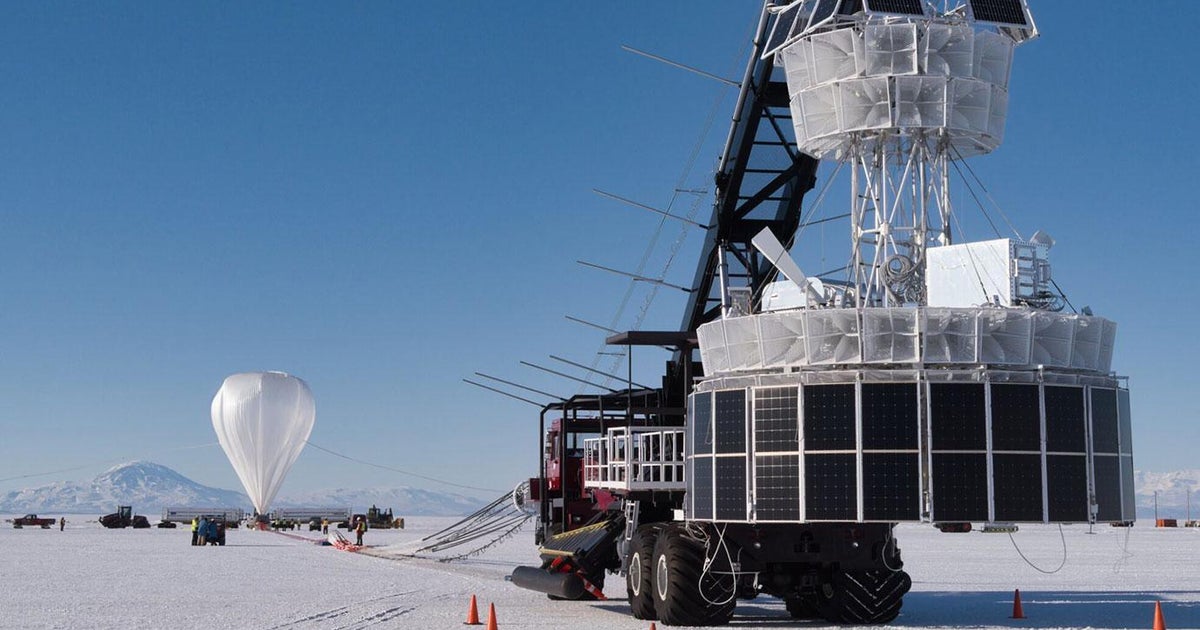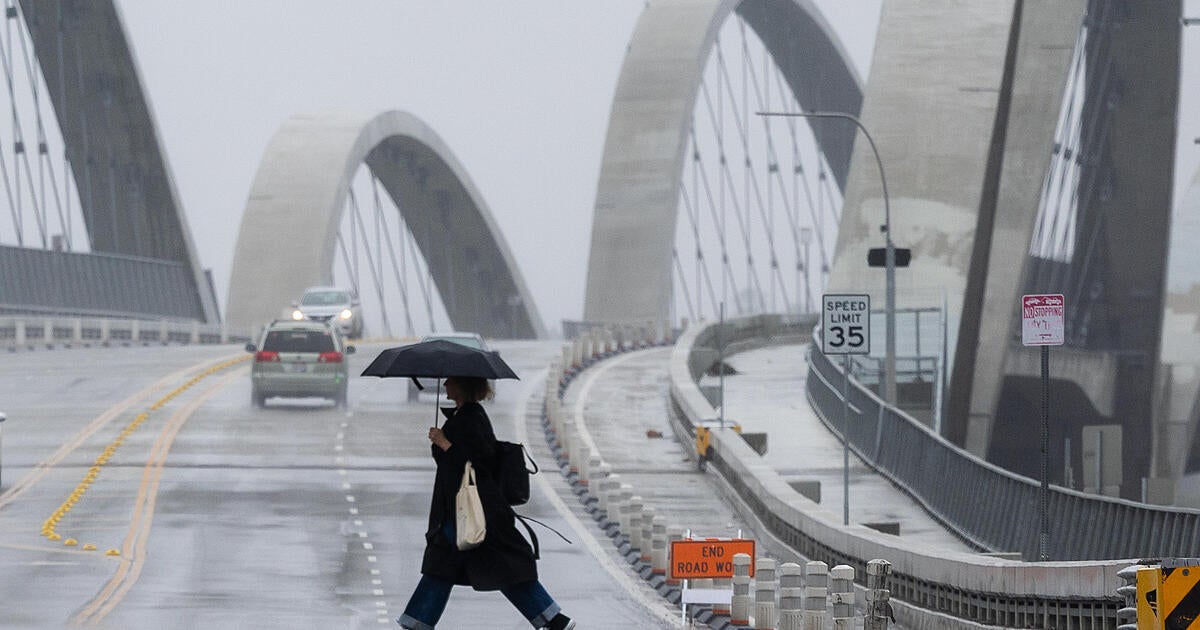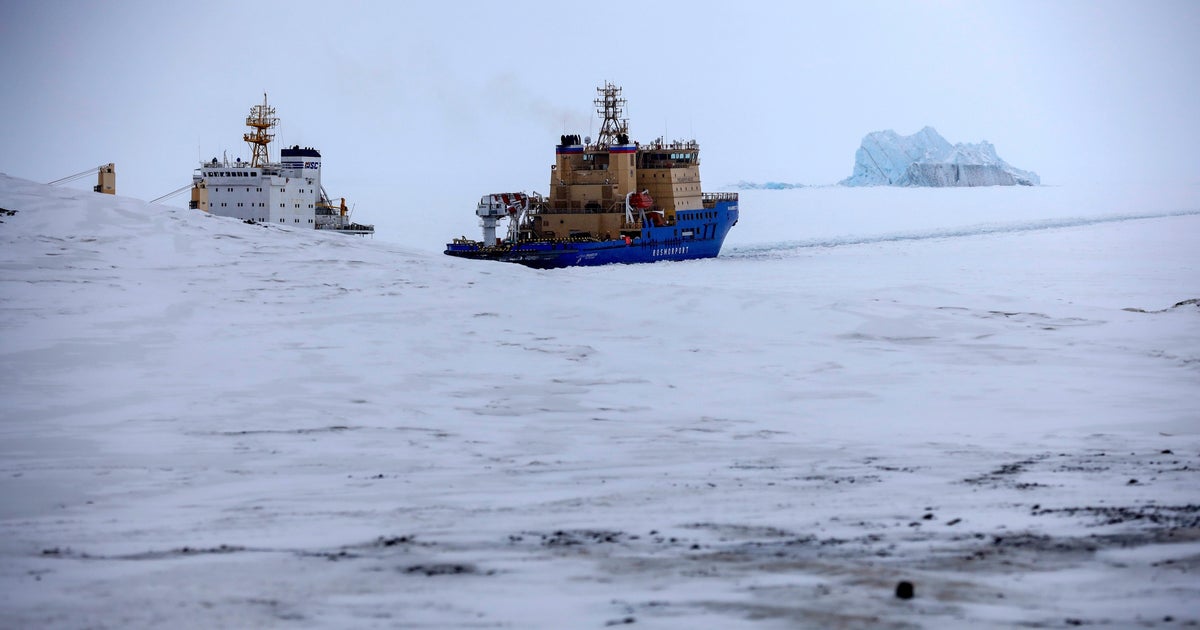"Eight years left to turn the ship": Scientists share how climate change could change daily life
Earlier this month, more than 300 people in South Africa were killed as record rainfall washed away buildings and infrastructure in the Kwa-Zulu Natal province. A day earlier, dozens were killed in the Philippines after tropical storm Megi spurred landslides and floods.
The world is rapidly shifting — and the impact of human-caused climate change is increasingly evident.
"We're in a very different place now from where we were even just a couple decades ago," atmospheric physicist Alex Hall, director of the UCLA Center of Climate Science, told CBS News.
Hall, who in the 1990s was among the teams that initially predicted effects of global warming, extreme heat, Arctic ice loss and sea level rise, said those predictions once "felt a little bit like abstractions."
Today, they're observed almost daily. And without urgent action, these kinds of events — and others — will be more intense and frequent, Hall said, and change the scope of daily life for everyone, forever.
"You can't put the genie back in the bottle"
Today's situation on Earth is decades in the making. UCLA Institute of the Environment and Sustainability ecology researcher and professor Dan Blumstein told CBS News that it takes years to start seeing the effects of climate change, and once those effects are seen, they're essentially "burned in."
"You can't put the genie back in the bottle," he said. "The devil with climate change is, we can stop burning carbon tomorrow, all carbon tomorrow, and we would still have burning effects from the carbon that's in the atmosphere."
Today's extreme events are only a glimpse of what's to come.
"We are seeing already big increases in large storms. Hurricane Harvey hit Houston and Hurricane Sandy in New York," said Hall, the atmospheric physicist. "...That's what we've been predicting with a warmer world and we will have more of those types of impacts."
This is why experts say carbon emissions must be addressed immediately. Carbon dioxide is the most abundant of the greenhouse gases — a set of gases that in large quantities create a sort of heavy blanket in the atmosphere that traps heat on Earth. In 2020, carbon dioxide accounted for roughly 79% of all greenhouse gas emissions in the U.S., according to the Environmental Protection Agency.
Failure to limit this gas over the next eight years, the United Nation's Intergovernmental Panel on Climate Change has warned, will bring about so much warming that the 2030s will bring "extreme events unprecedented in the observational record."
And it's a grim future in store if we don't take action swiftly.
Dr. Deborah Brosnan, a scientist and marine resilience specialist, told CBS News, "we're not going to go back to the way it was 20 years ago for our planet." Rather, things are just going to continue to rapidly evolve.
As things are, people in the Pacific Northwest will likely see more intense heat waves and worsening air quality, Brosnan said, and the 20 million people who live less than 15 feet above sea level on island nations will be dealing with significant storm surge and economic repercussions as their land is swallowed by the sea.
"In some areas, you've had like 100 feet of beach has disappeared," Brosnan said. "...Where do people who live this close to the ocean go? Where do they go for new jobs? Where do they relocate? The islands are going to face a huge economic burden and they don't have the resources to do it."
Excruciating heat will make summers increasingly dangerous. Agriculture and food supplies will suffer. People will be forced to migrate. Costs of living will skyrocket. All of these factors — and more — will contribute to political and social instability worldwide.
Countries have committed to mitigating climate change factors under the Paris Agreement, and there are signs of hope with increased civic engagement and wealthy countries showing "intention" for net-zero emissions. But the U.N. panel warned again in February that those pledges are so far "insufficient to limit warming to 1.5°C with no or limited overshoot."
Essentially, it's not enough. And the "window of opportunity" for a livable future, the group said, is "rapidly closing."
But Hall says "that doesn't mean we shouldn't be doing everything" to mitigate.
"On the contrary," he said, "it just underscores the urgency for action."
"Eight years left to turn the ship"
Blumstein, Brosnan and Hall all agreed that the future is going to look vastly different than what we know today. Large-scale and urgent action is the only way to make the harshest of that future reality more manageable. Blumstein said we have the technology and knowledge to do it.
But, he said, "we really are running out of time."
"This isn't a 'lack of science' problem. This is a 'lack of will' problem," Blumstein told CBS News. "When you sort of put the environment in a geopolitical perspective, we see what a perfect storm we're facing right now."
One of the biggest issues in this storm is not holding governments or companies accountable for their negative contributions or inaction in fighting the climate crisis, they said.
Just last week, for example, the Biden administration announced it would allow new oil and natural gas drilling leases for public lands, a system that he suspended right after he took office last year.
"We see the Biden administration right now going from, 'hey, let's support green energy,' to 'hey, let's pump more oil so we can solve the geopolitical problems and prevent Russia from selling their own oil,'" Blumstein said. "That's not good in the short term or long term. Pumping more oil in the short term isn't going to solve our problems. Exploring more oil in the long term is going to kill us."
"It's messy," Brosnan said. "... We don't have a coherent transition policy at any level. Not for government, not for communities, not for private sector."
"Personal choices matter"
Corporations and governments are the biggest actors involved in the crisis, but the scientists CBS News spoke with explained individuals also play an important role.
"That is using paper straws, but it also comes back to what products do you buy? What companies do you choose to support? Personal choices matter," Brosnan said. "...How do you vote? Do you get engaged?"
Individual choices and sustainable lifestyle changes, they explained, can help create larger conversations and create a sense of community around climate change and the health of the environment in general.
"If we don't respect others on Earth, we're never going to work together with people that might have different beliefs to solve the problems we need to solve," Blumstein said. "...It really is that resurgence of the community spirit that is going to solve our problems."
The numerous dire warnings from experts and ever-worsening climate disasters should be a "wakeup call," Brosnan said.
"We've got eight years ... eight years left to turn the ship," Brosnan said. "I don't just mean push the needle. Like literally turn the ship."



